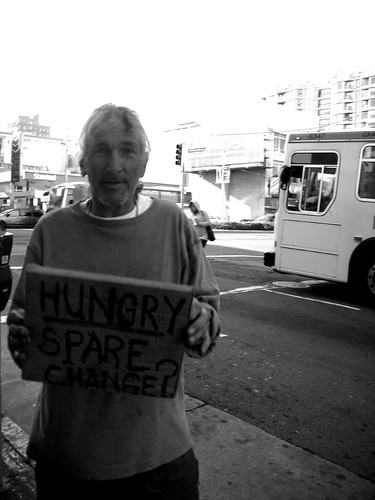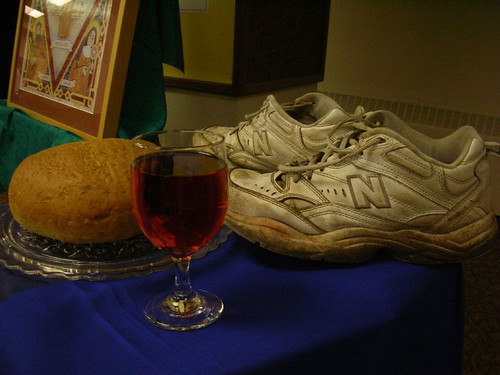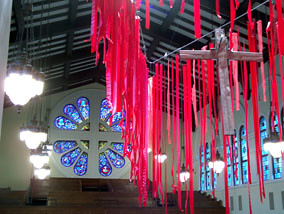If you don't know me, my name is Rev. Megan Rohrer and I am the director of the Welcome Ministry in San Francisco, where I have been eating with and journeying with the chronically homeless (many who have been homeless for more than 25 years).
Each year for the past six years, I have been going on street retreats - to live in the Tenderloin. This is a journey I regularly take with a group called the Faithful Fools. I have had various motivations that have led me to the streets. Certainly, these retreats inform my work with the homeless throughout the rest of the year. But, because the retreat also includes twice daily reflection, it also becomes one of the most self revelatory times of my year.
Street retreat helps me to feel in my bones what it means to say "no" to guests requests, the ache of sleeping on the sidewalk, and the severe mental toll of my mere glimpse into what others are stuck in for far too long.
While I have entered my retreat with different expectations each year, I have found one thing is often the same: my retreat is an embodied living of all my stereotypes of the homeless I am living and working with.
When I thought homeless people were smelling and go to a lot of free meal sights, I became very smelling ate at a lot of different meal sites. When I thought the homeless panhandled a lot and ate out, I panhandled a lot and ate out at every meal. When I thought that homeless people stayed in one space and had a lot of freedom, I stayed in one place and had a lot of freedom.
As I listen to the stories of the homeless, I know that there are as many ways to be homeless as there are homeless people. I also know that the knowledge that I have a warm bed to come home to at the end of my week and a job waiting for me. It is not possible for me to escape these limitations of my power and privilege. Acknowledging this, here is how I seek to retreat to the streets this year...
Acknowledge my biases and with constant reflection on how I am holding myself apart and the ways I am choosing to connect to life on the streets, I seek to embrace vulnerability in my body to learn more about my truest self, and to work mightily to walk with each step moving me a step closer to God(dess).
In my past year working with our homeless guests, I have found that there is one aspect that I need to learn more about: my transgender brothers and sisters living on the streets. This is a journey to not only learn more about our guests, but also myself.
Before I was born my name was Ryan. A heart monitor told the doctor that I was a boy. When I was born the first words exclaimed were "oops" when the doctor saw that my body was female. For three days I was baby girl Rohrer, until I was named Megan.
I love my body and the life that I have lived, but I deeply believe that my gender queerness is not an "oops." I believe that both my heart and my body got it right. Yet in the world we live in, people tend to judge people's bodies without seeing their heart.
Today, I embrace both the male and female sides of my life.
So this year on street retreat I have decided to pass as male and go by Ryan. I hope this will be a way for me to expose my heart more fully to the streets. I ask you to join me in this journey, as I learn more about what it is like for my trans kin living on the streets and for my own personal gender expressions.
Each day I will be reflecting about my experiences on this blog at: http://mystreetretreat.blogspot.com/
I hope you will pray with me, think about your own naming stories and share with me your experiences, fears and joys about my street retreat experience.
Blessings
 Rev. Megan Rohrer
Rev. Megan RohrerDirector
The Welc





